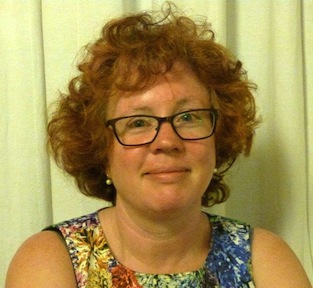Studying at the University of Verona
Here you can find information on the organisational aspects of the Programme, lecture timetables, learning activities and useful contact details for your time at the University, from enrolment to graduation.
Academic calendar
The academic calendar shows the deadlines and scheduled events that are relevant to students, teaching and technical-administrative staff of the University. Public holidays and University closures are also indicated. The academic year normally begins on 1 October each year and ends on 30 September of the following year.
Course calendar
The Academic Calendar sets out the degree programme lecture and exam timetables, as well as the relevant university closure dates..
| Period | From | To |
|---|---|---|
| I semestre | Oct 1, 2009 | Jan 16, 2010 |
| II semestre | Feb 22, 2010 | May 31, 2010 |
| Session | From | To |
|---|---|---|
| sessione esami invernale | Jan 18, 2010 | Feb 20, 2010 |
| sessione esami estiva | Jun 1, 2010 | Jul 10, 2010 |
| sessione esami autunnale | Sep 1, 2010 | Sep 29, 2010 |
| Session | From | To |
|---|---|---|
| Sessione lauree autunnale | Nov 26, 2009 | Nov 28, 2009 |
| Sessione lauree invernale | Apr 7, 2010 | Apr 10, 2010 |
| Sessione lauree estiva | Jul 12, 2010 | Jul 16, 2010 |
| Period | From | To |
|---|---|---|
| Festa di Ognissanti | Nov 1, 2009 | Nov 1, 2009 |
| Festa dell'Immacolata Concezione | Dec 8, 2009 | Dec 8, 2009 |
| Vacanze di Natale | Dec 23, 2009 | Jan 6, 2010 |
| Vacanze di Pasqua | Mar 29, 2010 | Apr 6, 2010 |
| Festa della Liberazione | Apr 25, 2010 | Apr 25, 2010 |
| Festa del Lavoro | May 1, 2010 | May 1, 2010 |
| Festa del Santo Patrono di Verona S. Zeno | May 21, 2010 | May 21, 2010 |
| Festa della Repubblica | Jun 2, 2010 | Jun 2, 2010 |
Exam calendar
Exam dates and rounds are managed by the relevant Foreign Languages and Literatures Teaching and Student Services Unit.
To view all the exam sessions available, please use the Exam dashboard on ESSE3.
If you forgot your login details or have problems logging in, please contact the relevant IT HelpDesk, or check the login details recovery web page.
Should you have any doubts or questions, please check the Enrollment FAQs
Academic staff
 birgit.alber@univr.it
birgit.alber@univr.it
Ambrosi Paola
 paola.ambrosi@univr.it
paola.ambrosi@univr.it
 +39 045 802 8466
+39 045 802 8466
 paola.bellomi@univr.it
paola.bellomi@univr.it
Bordin Elisa
 elisa.bordin@univr.it
elisa.bordin@univr.it
 cecilia.grana@univr.it
cecilia.grana@univr.it

Locher Elmar
 elmar.locher@univr.it
elmar.locher@univr.it
 +39 045802 8311
+39 045802 8311
Longhi Silvia
 silvia.longhi@univr.it
silvia.longhi@univr.it
 +39 045802 8329
+39 045802 8329
Panzeri Lino
 lino.panzeri@univr.it
lino.panzeri@univr.it
 +39 045 8028264
+39 045 8028264
 sara.paolini@univr.it
sara.paolini@univr.it
Perbellini Maria
 prbmra42@univr.it
prbmra42@univr.it
Piva Marika
 rita.severi@univr.it
rita.severi@univr.it
 antonella.toffali@univr.it
antonella.toffali@univr.it

Tosco Pietro
 pietro.tosco@univr.it
pietro.tosco@univr.it
 francesco.vecchiato@univr.it
francesco.vecchiato@univr.it

Zaccarello Michelangelo
 michelangelo.zaccarello@univr.it
michelangelo.zaccarello@univr.it
 +39 045 802 8330
+39 045 802 8330
Study Plan
The Study Plan includes all modules, teaching and learning activities that each student will need to undertake during their time at the University.
Please select your Study Plan based on your enrollment year.
1° Year
| Modules | Credits | TAF | SSD |
|---|
2° Year activated in the A.Y. 2010/2011
| Modules | Credits | TAF | SSD |
|---|
3° Year activated in the A.Y. 2011/2012
| Modules | Credits | TAF | SSD |
|---|
| Modules | Credits | TAF | SSD |
|---|
| Modules | Credits | TAF | SSD |
|---|
| Modules | Credits | TAF | SSD |
|---|
Legend | Type of training activity (TTA)
TAF (Type of Educational Activity) All courses and activities are classified into different types of educational activities, indicated by a letter.
English Literature II [CInt M-Z] (2010/2011)
Teaching code
4S00869
Teacher
Coordinator
Credits
9
Language
Italian
Scientific Disciplinary Sector (SSD)
L-LIN/10 - ENGLISH LITERATURE
Period
I semestre dal Oct 4, 2010 al Jan 15, 2011.
Learning outcomes
The module aims at offering an overview of seventeenth- and eighteenth-century English literature, as well as at presenting the students with the basics of textual and literary genre analysis.
Program
«Original sin(s) and fictional conversions. From Milton to Richardson»
The module will deal with a selection of poetic and narrative late seventeenth- and eighteenth-century texts on the basis of the changed (and changing) notions of sin and conversion, and their representation, looking at their various literary, religious, and political aspects. Different genres will be taken into account: from epic, to spiritual autobiography, to novel.
The programme consists of three parts: primary texts, references (and supplementary references for non-attending students), and literary history.
Language: the module will be held in English and in Italian; primary texts will be read in English.
BIBLIOGRAPHY
Primary texts
- J. Milton, Paradise Lost [Books I & IX], any English or parallel edition.
- J. Bunyan, Grace Abounding to the Chief of Sinners, any English edition.
- D. Defoe, Moll Flanders, (ed. by D. Blewett), Penguin, 2003.
- S. Richardson, Pamela, (ed. by M. Doody), Penguin, 2003.
References
- M. Kishlanski, L’età degli Stuart, Il Mulino, 1999, ch. IX, X, XI.
- B. Lewalsky, “The Genres of Paradise Lost”, in The Cambridge Companion to John Milton, ed. by D. Danielson, CUP, 1999, pp. 113-129.
- D. Danielson, “The Fall and Milton’s Theodicity”, in The Cambridge Companion to John Milton, ed. by D. Danielson, CUP, 1999, pp. 144-159.
- R. Bell, “Metamorphoses of Spiritual Autobiography”, ELH, 44:1, 1977, pp. 108-126.
- N. Rosenfeld, “The Tempter in Grace Abounding”, in The Human Satan in Seventeenth-Century English Literature, Ashgate, 2008, pp. 31-52.
- R.S. Beal, “Grace Abounding to the Chief of Sinners: John Bunyan’s Pauline Epistle”, Studies in English Literature, 1500-1900, 21:1, 1981, pp. 147-160.
- I. Watt, The rise of the novel: studies in Defoe, Richardson and Fielding, Penguin, 1972, pp. 9-59 e 93-173.
- S.C. Conboy, “Fabric and Fabrication in Richardson’s Pamela”, ELH, 54:1, 1987, pp. 81-96.
- L. Innocenti, “Introduzione”, in L’invenzione del vero. Forme dell'autenticazione nel romanzo inglese del ’700, a c. di L. Innocenti, Pacini, 2000, pp. 5-19.
- J. Clegg, “Defoe evidence and the eyewitness”, in L’invenzione del vero. Forme dell'autenticazione nel romanzo inglese del ’700, a c. di L. Innocenti, Pacini, 2000, pp. 21-77.
Supplementary references for non-attending students
- J. Carey, “Milton’s Satan”, in The Cambridge Companion to John Milton, ed. by D. Danielson, CUP, 1999, pp. 160-174.
- P.J. Carlton, “Bunyan: Language, Convention, Authority”, ELH, 51:1, 1984, pp. 17-32.
- R. DiGiuseppe, “The Ghost in Machine: Moll Flanders and the Body Politic”, Quaderni di Lingue e Letterature, 1993, pp. 312-326.
- C. McIntosh, “Pamela’s Clothes”, ELH, 35:1, 1968, pp. 75-83.
Handbooks
As regards the literary and cultural context spanning from 1660 to 1830 (from Milton to Romanticism), students are free to choose between the following handbooks:
- A. Sanders, The Short Oxford History of English Literature, OUP, 2004.
- R. Carter, J. McRae, The Routledge History of English Literature, Routledge, 2001.
To facilitate textual reading, students may refer to any of the following optional handbooks of narratology, rhetoric, stylistics and poetics:
Narratology:
- A. Marchese, L’officina del racconto, Milano, Mondadori, 1990.
Rhetoric, stylistics, and poetics:
- B. Mortara Garavelli, Manuale di retorica, Milano, Bompiani, 1999.
- M. P. Ellero, Introduzione alla retorica, Firenze, Sansoni Editore, 1997.
- A. Marchese, Dizionario di retorica e stilistica, Milano, Mondadori, 2002.
- A. Marchese, Il laboratorio della poesia, Milano, Mondadori, 1997.
Please be advised
Further details on required readings and general information on bibliographical material will be provided during classes.
Examination Methods
The exam will consist in an oral discussion in Italian and in English of the module’s topics
Teaching materials e documents
-
 Epic Simile in PL
(pdf, it, 123 KB, 28/10/10)
Epic Simile in PL
(pdf, it, 123 KB, 28/10/10)
-
 Genesis 25
(pdf, it, 32 KB, 19/11/10)
Genesis 25
(pdf, it, 32 KB, 19/11/10)
-
 Genesis 3
(pdf, it, 28 KB, 23/10/10)
Genesis 3
(pdf, it, 28 KB, 23/10/10)
-
 Maze, noun
(pdf, it, 224 KB, 26/10/10)
Maze, noun
(pdf, it, 224 KB, 26/10/10)
-
 Maze, verb
(pdf, it, 173 KB, 26/10/10)
Maze, verb
(pdf, it, 173 KB, 26/10/10)
-
 Paradise Lost_Contents
(pdf, it, 86 KB, 07/10/10)
Paradise Lost_Contents
(pdf, it, 86 KB, 07/10/10)
Type D and Type F activities
To discover all the teaching activities accredited by the foreign teaching college click here
Career prospects
Module/Programme news
News for students
There you will find information, resources and services useful during your time at the University (Student’s exam record, your study plan on ESSE3, Distance Learning courses, university email account, office forms, administrative procedures, etc.). You can log into MyUnivr with your GIA login details: only in this way will you be able to receive notification of all the notices from your teachers and your secretariat via email and soon also via the Univr app.
Student login and resources
Gestione carriere
Assegnazione tutore
Attività accreditate D/F
Calendario didattico dettagliato
Cambio lingua curriculare
Competenze informatiche
Competenze linguistiche (prima e seconda lingua)
Competenze linguistiche in triennale (terza lingua CFU F)
Compilazione del piano didattico
Corso di Lingua portoghese
Erasmus+ e altre esperienze all'estero
Linguistic training CLA
Presentazione dei corsi di studio e Open day
Graduation
List of theses and work experience proposals
| Stage | Research area |
|---|---|
| PROGETTO MAMBRINO Stage per bibliografia | Various topics |
Saperi minimi
Stage e tirocini
Nel piano didattico della laurea triennale in Lingue per il turismo e il commercio internazionale (L12) è previsto un periodo di stage obbligatorio (CFU 6) in organizzazioni imprenditoriali.
Le attività di stage sono finalizzate a far acquisire allo studente una conoscenza diretta in settori di particolare interesse per l’inserimento nel mondo del lavoro e per l’acquisizione di abilità professionali specifiche.
Le attività di stage sono svolte sotto la diretta responsabilità di un singolo docente presso studi professionali, enti della pubblica amministrazione, aziende accreditate dall’Ateneo veronese.
I crediti maturati in seguito ad attività di stage saranno attribuiti secondo quanto disposto nel dettaglio dal “Regolamento d’Ateneo per il riconoscimento dei crediti maturati negli stage universitari” vigente.
- Tutte le informazioni in merito agli stage per futuri studenti sono disponibili alla pagina Stage e tirocini.
- Tutte le informazioni in merito agli stage per studenti iscritti sono pubblicate in MyUnivr - come fare per - stage e tirocini.
- Tutte le informazioni in merito agli stage per le aziende sono disponili alla pagina Stage e tirocini per azienze.
Ulteriori informazioni al seguente link https://www.univr.it/it/i-nostri-servizi/gestione-carriere-studenti-lingue-e-letterature-straniere/stage-e-tirocini-lingue-e-letterature-straniere






































